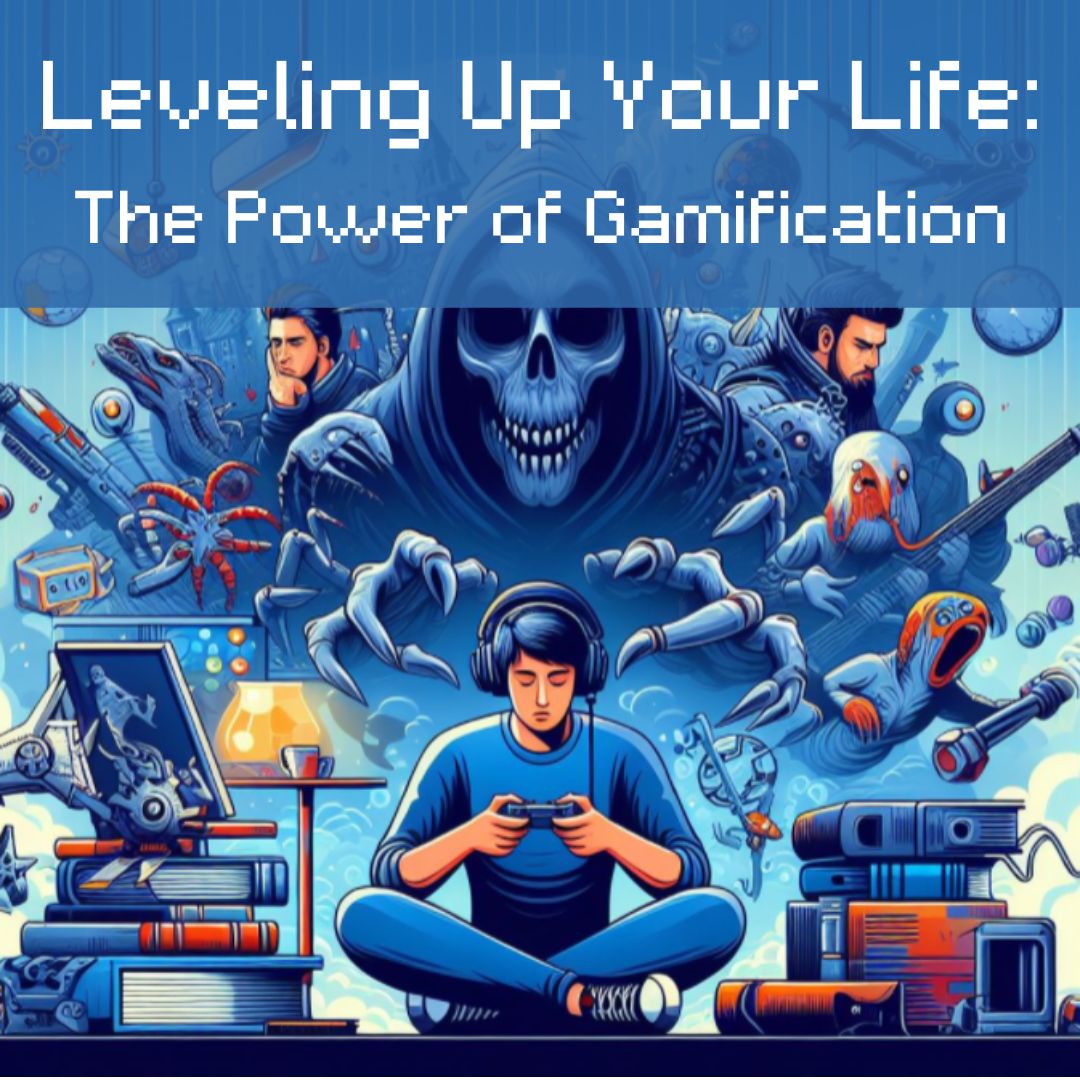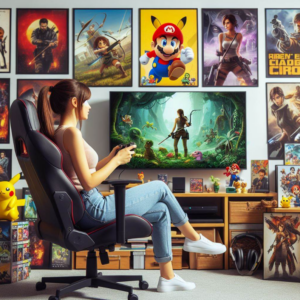
Things I’ve learned about life from playing video games:
If you’re facing new challenges or obstacles, then you’re going the right way.
Picture this: you sit in front of a screen, fully immersed in an incredibly detailed and open world complete with dynamic ecosystems and relationships that feel as if they mimic aspects of real life. The simulations feel like you’re navigating a world similar to your own yet heightened with fantasy elements. Decision-making mechanics, where your choices have consequences, impact the video game world and storyline. You feel a sense of agency, control, and responsibility.
Meanwhile, you somehow became disconnected with Player 1 in your own world. Your disheveled appearance is made complete by your tired eyes. In the background are the subtle visual cues hinting at neglected responsibilities; unfinished homework, neglected household chores, and a tower of empty Dr. Pepper cans. The shadows of concerned family members or friends hover outside the doorway.
There are mental health benefits associated with playing video games in moderation. For example, gaming can provide a temporary escape from stressors, reducing feelings of tension and anxiety. Engaging in creative gameplay experiences can stimulate the mind and inspire artistic expression. Immersing oneself in a game can provide a break from rumination and help individuals cope with challenging situations or emotions. For some individuals, online gaming communities serve as a valuable source of social support and validation.
What happens when juggling your obligations, navigating distress, and fostering healthy relationships feels too overwhelming IRL (in-real-life)?
 To escape through gaming may feel all the more enticing, but this could come at a price. The toll of neglected self-care is often associated with excessive gaming. Sedentary behavior can increase the risk of obesity, musculoskeletal issues, and other health problems. Excessive gaming may also exacerbate existing mental health conditions such as depression or anxiety. Some gamers may prioritize gaming expenses, subscription fees, and buying game-related merch over other essential needs. For children and adolescents, excessive gaming can interfere with important developmental milestones, such as social skills development, academic achievement, and emotional regulation.
To escape through gaming may feel all the more enticing, but this could come at a price. The toll of neglected self-care is often associated with excessive gaming. Sedentary behavior can increase the risk of obesity, musculoskeletal issues, and other health problems. Excessive gaming may also exacerbate existing mental health conditions such as depression or anxiety. Some gamers may prioritize gaming expenses, subscription fees, and buying game-related merch over other essential needs. For children and adolescents, excessive gaming can interfere with important developmental milestones, such as social skills development, academic achievement, and emotional regulation.
What if there was a way to apply the appeal of video game design mechanics to real-life activities and situations?
Gamification of life essentially involves turning aspects of everyday life into a video game-like experience to make tasks more enjoyable, rewarding, and conducive to personal growth and development. These are all ingredients of the elixir that will enhance your skills in overcoming feelings of overwhelm, avoidance, and fear of failure.
Let’s explore some key components of Gamification:
1. Goal Setting: Similar to quests, try setting specific goals or challenges for yourself that would be required in order for Player 1 to level up. Be as specific as you can and start with a short-term focus on the things you want to improve like health, education, or career. An example could be spending 15 minutes walking outdoors 5 times a week, focusing one hour of your time on improving the comfort of your living space three days a week (i.e. trash and laundry), or creating a daily routine of updating your calendar with the deadlines of assignments and the important appointments you have coming up. Remember, side quests are an important part of the campaign.
2. Progress Tracking: In gaming, your progress is tracked with visuals such as progress bars, achievement badges, or XP (experience points). This gives you a sense of accomplishment and encourages continued effort. Similarly, there are apps that can support progress toward the goals listed in step 1 with visual indicators of the progress you’re making. A couple we love using include WoofTracks to earn sponsor donations to animal charities by logging your time walking outdoors (with or without a dog), and Finch: Self Care Pet which tracks the growth of a small finch with each completed goal, similar to the 90s Tamagotchi.
(Art of the Matter does not receive any form of sponsorship or compensation for recommending these apps.)
3. Rewards and Incentives: Rewards, both intrinsic (a sense of achievement) and extrinsic (tangible rewards or recognition), can incentivize desired behaviors and outcomes. You’ll notice you begin to feel more confident as you track your progress toward your goals, so how would you like to reward yourself?
4. Social Engagement: Incorporating social elements such as competition, collaboration, or community support adds an additional layer of motivation and accountability. Sharing progress with friends or participating in group challenges can enhance motivation and foster a sense of camaraderie. Do your friends in your Discord servers share a similar desire to improve their daily habits and mental health? Are there any communities or support groups in your area that may share similar goals?
5. Feedback and Reflection: You know those NPCs (non-playable-characters) that are hinting at ways to successfully use your resources or features of the environment to improve your odds of challenging the next boss? Similarly, regular feedback on performance and progress will help you assess your strengths and areas for improvement. You might also find that reflecting on past experiences will help you adjust your strategies and approach to achieve better results in the future. So here are some questions to ask yourself: Whose feedback do I trust? Can I allow myself an experience of failure in order to learn? Would I benefit from a therapist to provide an honest reflection and help me think outside the box?
More things I’ve learned about life from playing video games:
If it is exceptionally challenging to get somewhere, then the reward must be pretty good.
Gamification of life harnesses the motivational power of games to inspire positive behavior change, foster personal growth, and enhance overall well-being. By making real-life activities more enjoyable and rewarding, gamification can encourage you to take proactive steps towards achieving your goals and living a fulfilling life.
Our therapists can support you in leveling up and gaining the resources you need to take control of Player 1. Bridging the gap between virtual and real worlds can feel dangerous to go alone. Take this! The resources in this article may start your journey to gamify your life. Reach out today to connect with a trusted professional who can help you find and use the tools you need.
-Amber Dalzell, LCPC, ATR-BC, ATCS

